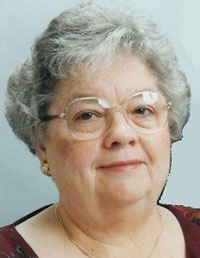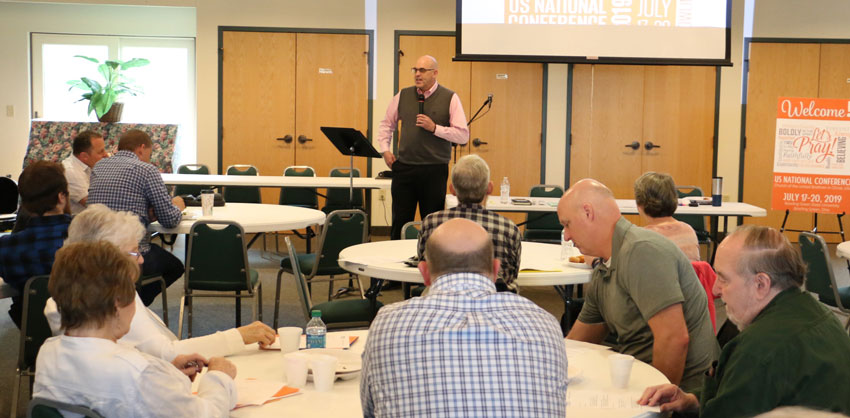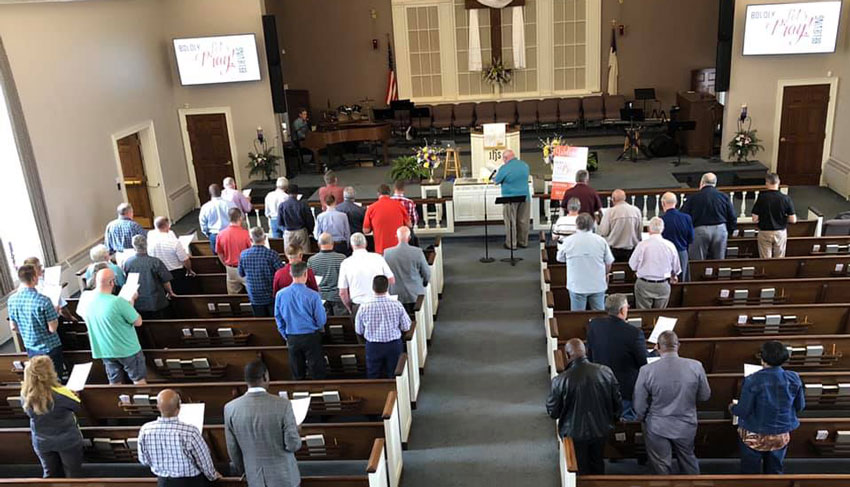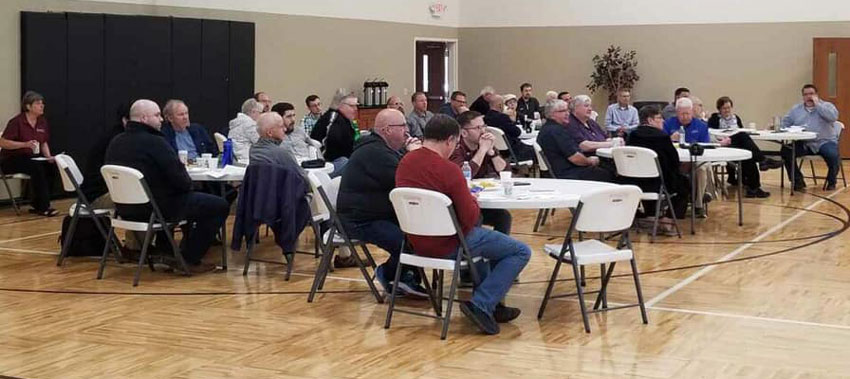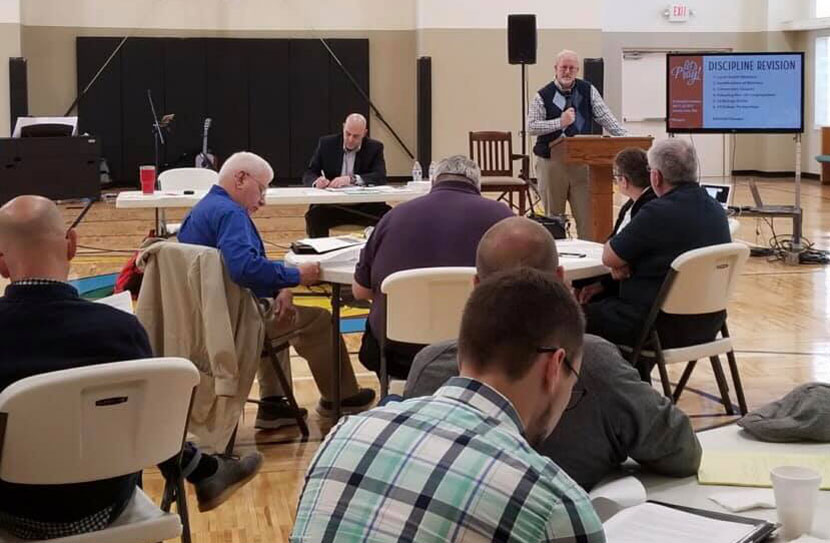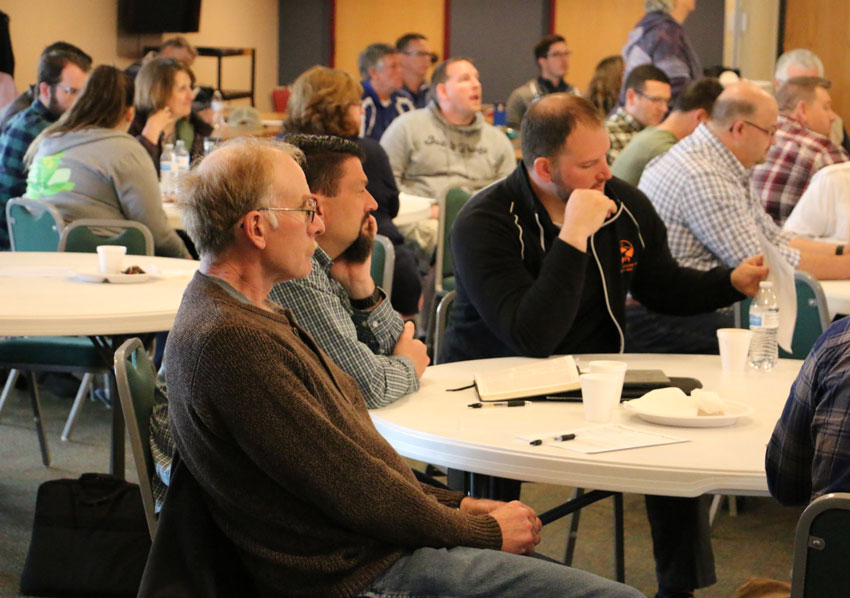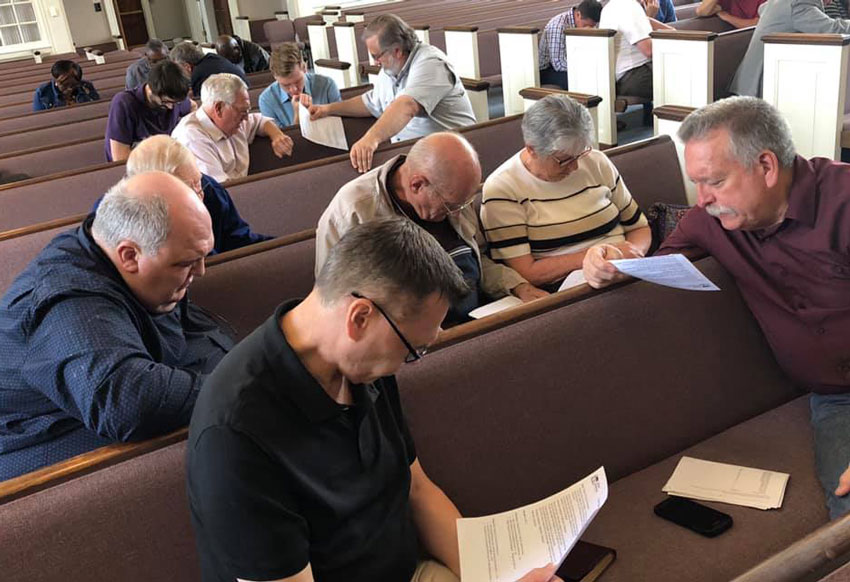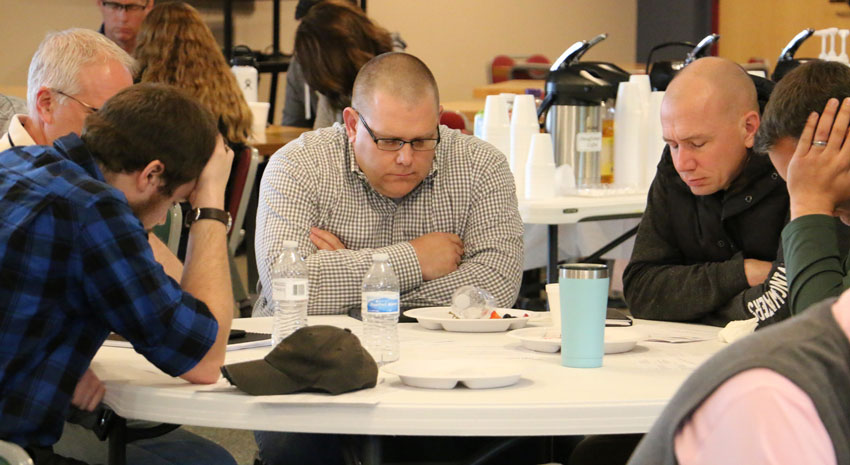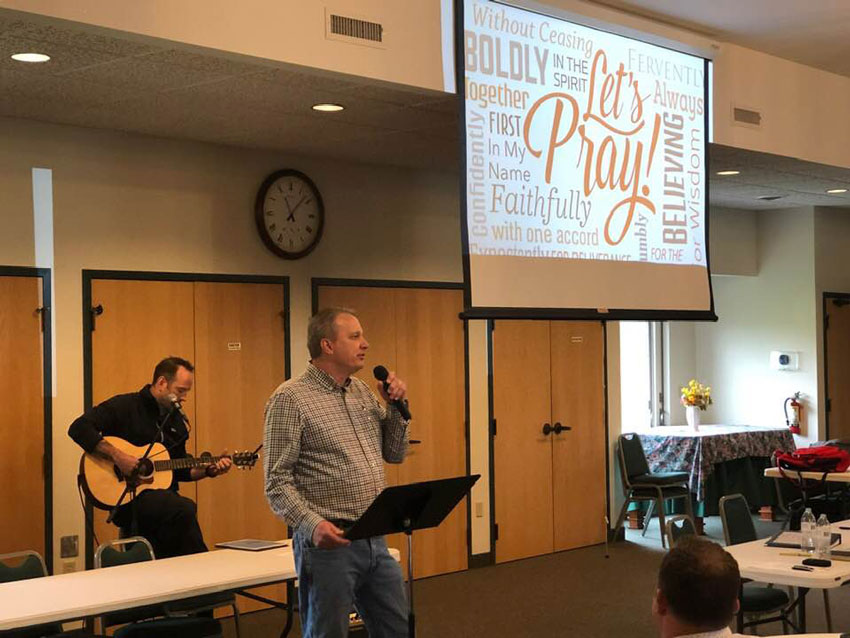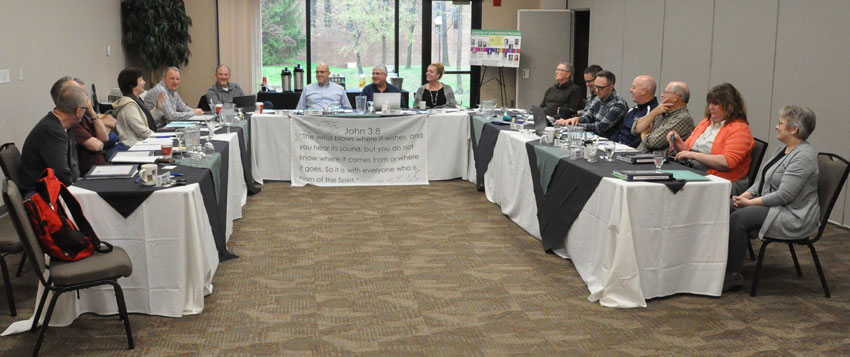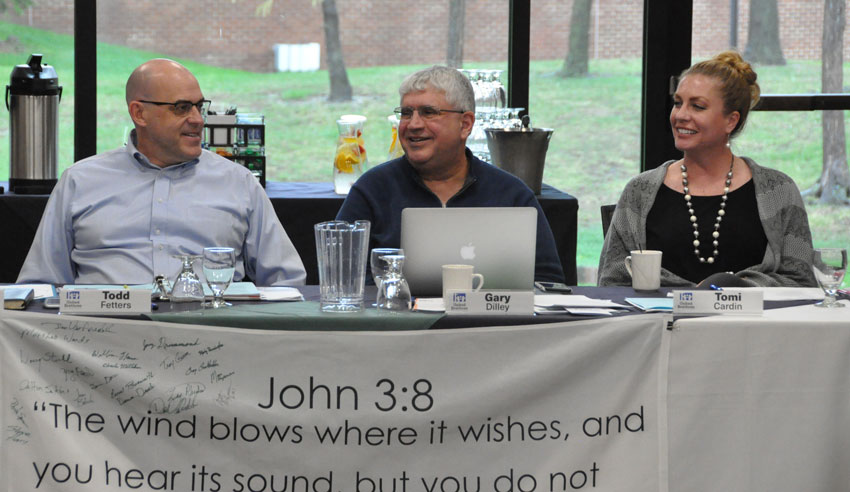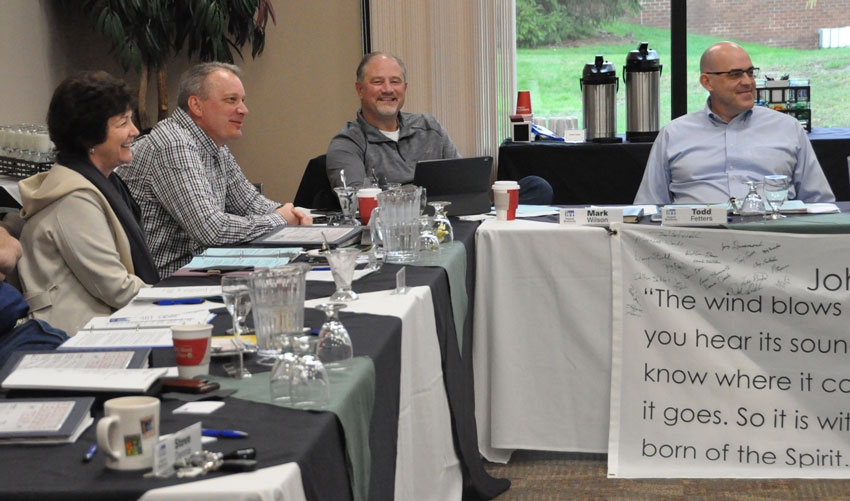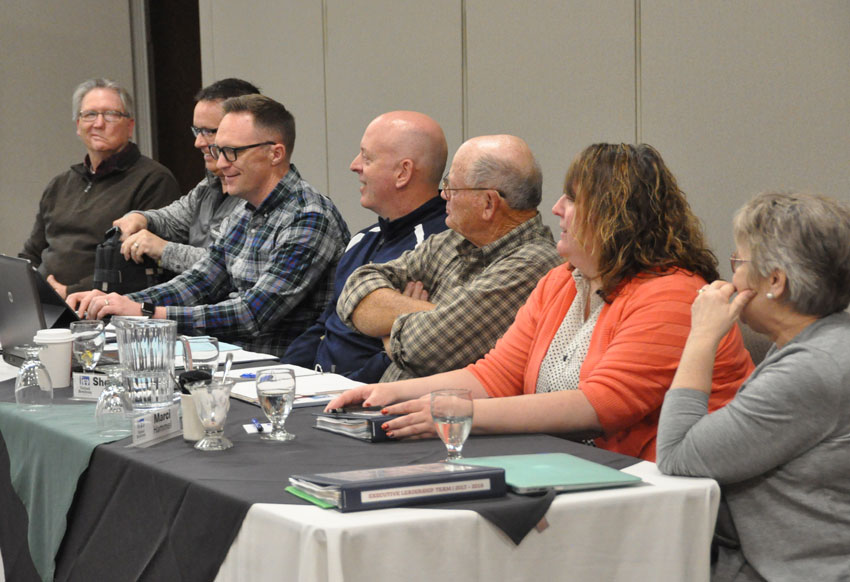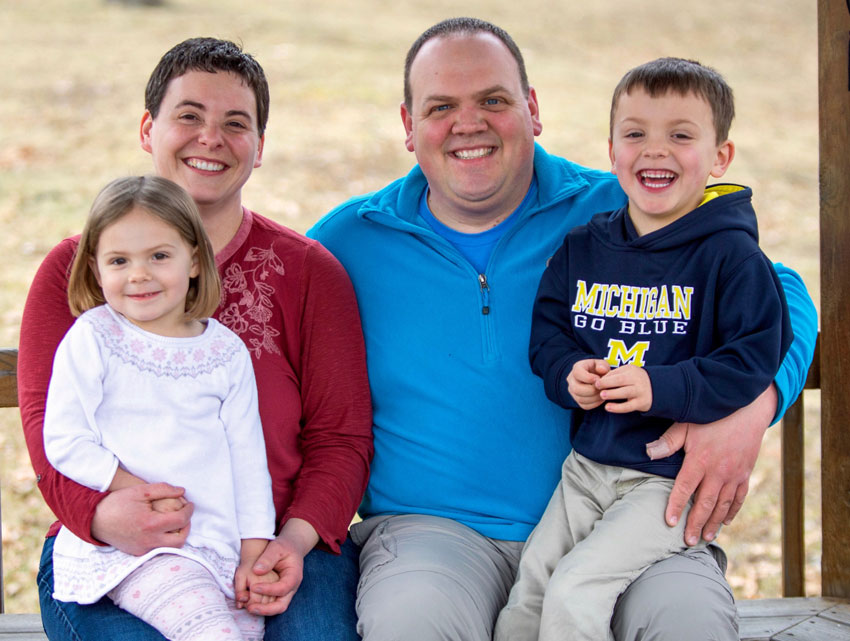May 24, 2019
|
Steve Dennie, UB Communications Director
As we enter Memorial Day weekend….The Religious Telescope, our denominational magazine during the 1800s, recorded the obituaries of nearly 900 United Brethren men who died fighting for the Union during the Civil War. They included about 35 UB ministers, and 40 sons of UB ministers. As a denomination, we were fully committed to the Union cause.
On March 11, 1864, Thomas Evans enlisted as a private in the Union army. He was 38 years old, not a young man like so many Civil War soldiers. He left a wife and seven children at home in Newport, Iowa. And he was not, then, a Christian. But he had some kind of United Brethren connection.
Evans was born in Delaware, but made his way west with the growing nation. He and Nancy were married in 1847 in Indiana, but eventually settled in Iowa. Then came war. Thomas said good-bye to his wife and children for the last time, and left home to join the 24th Iowa Infantry, Company D.
Within eight months, Thomas would die of wounds received in the battle of Cedar Creek, the culminating battle of the Shenandoah Valley Campaign of late 1864. It was a costly Union victory, with 644 killed, 3,430 wounded, and nearly 1600 taken prisoner. But it helped seal the fate of the Confederacy.
Evans’ obituary was published in The Religious Telescope, the United Brethren bi-weekly newspaper at the time. Perhaps he was what we called a “Seeker,” a category of membership for persons “giving evidence that they are sincerely seeking the Lord.” Nancy would soon become a United Brethren member, so there was probably a UB church there in Newport, or nearby. The UB presence was fairly thick in that part of Iowa.
If Thomas was, indeed, a Seeker, he had help for that journey while in the army. The Religious Telescope published the obituaries over 90 Iowa men who died serving in uniform. They included several United Brethren ministers, and laypersons from ages 17 to 59. They were spread among 32 infantry regiments and six cavalry regiments. We can assume that, in addition to these 90 fallen soldiers, hundreds of additional United Brethren men from Iowa served in and survived the war.
Six of those fallen men served in the 24th Iowa Infantry alongside Thomas Evans. Two of them were the sons of United Brethren preachers.
Abram Hershey, 59, was the son of Rev. Christian Hershey, who had basically started the UB church in Lisbon, Iowa. The Hersheys were from Lancaster, Pa., the birthplace of United Brethrenism. When Rev. Hershey came to Lisbon in 1847, a year after Iowa achieved statehood, he brought a bunch of relatives with him, including his son Abram and Abram’s large family. Other Pennsylvanians also came, enough that histories refer to the “Pennsylvania Settlement.” The Iowa Conference was organized at Lisbon in 1849, with Christian Hershey as one of the charter members, and Lisbon became perhaps the most prominent church in the conference.
Abram’s three oldest sons—Christian, John, and Henry Harrison—all enlisted in the Union army. Christian and John enlisted together on September 3, 1862, in the 24th Iowa Infantry. Christian was discharged for disability in May 1863—perhaps wounds, but more likely, sickness. But his father, Abram, signed up on March 3, 1864, to take Christian’s place.
Thomas Evans enlisted on March 11, 1864, just eight days after Abram. Though they were in different companies of the 24th—Abram and his sons in Company F, Thomas in Company D—we can assume that they at least got acquainted on their journey to join the regiment. But it’s quite likely that they already knew each other, since they lived just 16 miles apart.
Of the three brothers, John Hershey had the more distinguished military career. By May 1863, he had been promoted to sergeant. Then came 1864, quite an eventful year for him. First, his father joined Company F. Two months later, on April 8, John was severely wounded in the battle of Mansfield, La., a Union defeat (it is also known as the Battle of Sabine Cross Roads). Two months later, on June 13, his father, Abram, died of disease aboard a steamer near New Orleans. John recovered from his wounds, and then was wounded again, this time slightly, on September 19 at the battle of Opequon, also known as the third battle of Winchester, Va.
A month later, on October 19, John was taken prisoner at the battle of Cedar Creek, Va., the same battle in which Thomas Evans was mortally wounded. John, fortunately, was soon paroled in a prisoner exchange and would survive the war.
Another UB from the 24th died at Cedar Creek—George S. Smith, 23, who lived 14 miles from Evans. He was born in Germany, but was now living in Mount Vernon, Iowa, with a wife and three children. He had fought for two years before dying on the battlefield. He joined William O. Huyck, another young soldier from Mount Vernon, with whom he had enlisted in Company F in August 1862. Huyck, 30, a native of Ohio, died of disease on January 5, 1863.
Another UB preacher’s kid in the 24th was William Otterbein Miller, who was obviously named after founding bishop Philip William Otterbein. He was the son of Rev. Martin Miller, a pastor in Iowa Conference who, like the Hersheys, had come from Pennsylvania. Miller was wounded on September 19 at the battle of Opequon, and finally died of his wounds on February 13, 1865.
No doubt various other United Brethren served alongside Thomas Evans in the 24th regiment. Western College, a UB school located 18 miles from the Evans home, contributed a large number of students to the war effort. Then there would have been Christians from like-minded denominations like the Methodist and Evangelical churches. In fact, the 24th was sometimes called the “Methodist” regiment.
Thomas apparently sought God as a soldier. And it was as a soldier that he finally surrendered his life to Christ. It happened one night while he was on picket duty. Perhaps he was alone, but probably not. Was another UB with him when he committed his life to Jesus, between glances at the rebel pickets across the way? How might his decision have been influenced through interactions with Abram and John Hershey, George Smith, and William Otterbein Miller?
We don’t know how or when it happened, but it apparently did.
On October 19, 1864, Thomas Evans was severely wounded at the battle of Cedar Creek. His right forearm was amputated and he was hospitalized in Baltimore. But on November 5, he succumbed to his wounds.
A chaplain was there at his deathbed. According to Evans’ obituary in The Religious Telescope, “He told the chaplain that all he had to regret was that his children had never heard their father pray.”
The obituary added that Nancy Evans, Thomas’s wife, subsequently became a Christian and joined the local United Brethren church.

